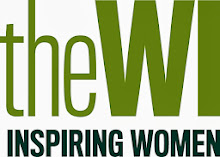A Journey to the interior - down desperate roads, across fields of puny maize, to meet a family beleaguered by HIV/Aids. Husband and wife and youngest son of two years all need ARVs every month. Mister was very ill but there is a marked difference now since receiving the drugs. His wife and son appear well. To collect these drugs for all three at once (which thankfully does happen now) he must walk back the way we came in our trusty 4x4, then pay the sum of $2 for the bus to take him to clinic.
This family live in abject poverty. Their food yesterday, some maize, of which there is enough left for today, was earned from a day's work in someone else's field.
A volunteer community worker, Ruth, who goes to five outlying villages over a two-week period and whose job would be eased if she had a bicycle, is seemingly this family's only hope at the moment. Her enthusiasm and her care of these people and obviously many more, really is a beacon of hope. This does remind me of our great organisation and all the voluntary hours that we put in.
This afternoon we visit the National Organisation of Midwives where its deputy, Harriet, reiterates the despondency they all feel at the abrupt halt in funding from government for training nurse/midwives. There are currently only 25% of the needed midwives in Malawi. Also their problem in retaining the midwives is many-fold, not least the high-risk aspect of their jobs as many have contracted HIV themselves. Also their fears around housing, electricity, transport and providing schooling for their own children. Solar powered electricity is part of the answer, as we saw at the health clinic on Monday did sport one of these, and the clinician had the best house in the village.
All this may go if maternal health isn't prioritised in the next health SWAP - more on this tomorrow.
skip to main |
skip to sidebar

Ruth Bond is the Chair of the National Federation of Women's Institutes
About Me

- The NFWI
- London, United Kingdom
- I am the Chair of the National Federation of Women's Institutes: the largest voluntary women's group in the UK. We offer women the chance to learn new skills and campaign on issues that matter to them.